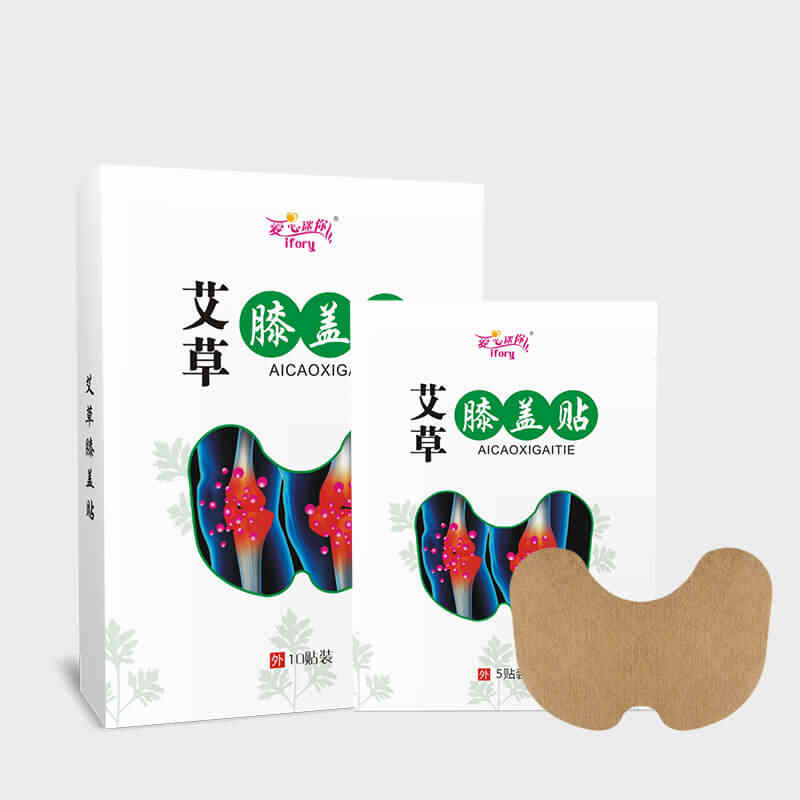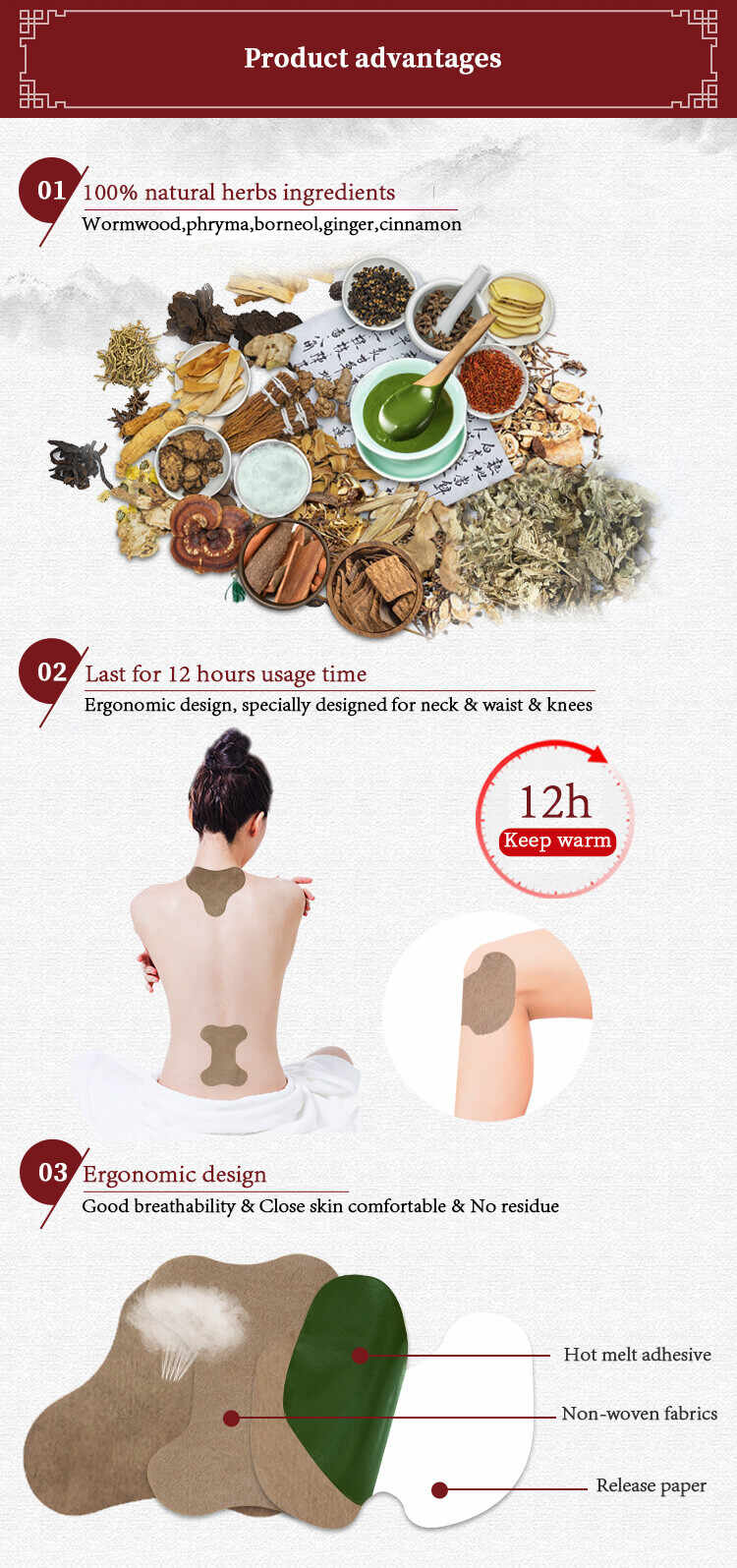What is the Difference Between Private Label and Custom Knee Pain Patches?
Knee pain relief patches have gained popularity as a non-invasive solution for managing discomfort and inflammation. When entering this market, businesses have two main options: Private Label Knee Pain Patches and Custom Knee Pain Patches. Understanding the differences between these options is crucial for making informed business decisions. This article will break down the distinctions, benefits, and considerations for each approach, helping you select the right Knee Pain Patches Manufacturer, Knee Pain Patches OEM, or Knee Pain Patches Supplier for your brand.

1. Understanding Private Label Knee Pain Patches
What Are Private Label Knee Pain Patches?
Private Label Knee Pain Patches are pre-formulated and pre-designed patches manufactured by a third-party Knee Pain Patches Supplier. Businesses can brand these patches with their logos, packaging, and marketing materials without altering the core product formulation.
Key Characteristics of Private Label Knee Pain Patches:
Pre-Existing Formulation: No changes can be made to the active ingredients.
Brand Customization: Businesses can add logos, colors, and design elements to the packaging.
Faster Market Entry: Since the formulation is already developed, businesses can launch products quickly.
Lower Costs: Private labeling eliminates the need for costly research and development.
Regulatory Compliance: The manufacturer ensures that the patches meet regulatory standards.
Who Should Choose Private Label Knee Pain Patches?
Startups & Small Businesses: Ideal for those who want to enter the market quickly and affordably.
Brands Focused on Marketing: Companies that prioritize branding and sales over formulation development.
Retailers & Wholesalers: Businesses looking to expand their product offerings with minimal investment.
2. Understanding Custom Knee Pain Patches
What Are Custom Knee Pain Patches?
Custom Knee Pain Patches are tailor-made products where businesses collaborate with a Knee Pain Patches OEM or manufacturer to create a unique formulation. This approach allows full control over ingredients, materials, and patch performance.
Key Characteristics of Custom Knee Pain Patches:
Unique Formulation: Businesses can modify active ingredients to target specific pain relief needs.
Exclusive Product Design: Custom shapes, sizes, and adhesion levels can be specified.
Competitive Advantage: Differentiates a brand from competitors by offering a unique product.
Longer Development Time: Requires R&D, testing, and regulatory approvals before production.
Higher Costs: More investment is needed for formulation, testing, and production setup.
Who Should Choose Custom Knee Pain Patches?
Brands with Specific Needs: Businesses targeting niche markets, such as athletes, seniors, or patients with chronic conditions.
Companies Focused on Innovation: Those looking to introduce new active ingredients or delivery mechanisms.
Established Brands: Companies that have the resources to invest in product differentiation and long-term success.
3. Comparing Private Label and Custom Knee Pain Patches
| Feature | Private Label Knee Pain Patches | Custom Knee Pain Patches |
|---|---|---|
| Formulation | Pre-made and fixed | Fully customizable |
| Branding | Custom branding, no changes to formulation | Unique branding and formulation |
| Time to Market | Faster (weeks) | Longer (months) |
| Cost | Lower upfront costs | Higher investment for R&D |
| Regulatory Compliance | Managed by manufacturer | Requires additional approvals |
| Competitive Edge | Less differentiation | Higher uniqueness |
| Best For | Startups, retailers, cost-conscious brands | Established brands, innovation-focused businesses |
4. Key Considerations When Choosing Between Private Label and Custom Knee Pain Patches
a) Business Goals and Market Strategy
If your goal is to quickly enter the market and build brand awareness, Private Label Knee Pain Patches are a great choice. If you aim to create a unique product with specific benefits, Custom Knee Pain Patches are the better option.
b) Budget and Investment
Private label options require lower financial commitments, whereas custom formulations demand higher investments in research, production, and regulatory compliance.
c) Production and Lead Time
Need a product on the market within weeks? Go with a private label. Willing to wait months for a unique, tailored formula? Choose custom patches.
d) Competitive Differentiation
Private label products may be similar to those sold by competitors, while custom patches allow brands to create a distinctive edge in the market.
5. How to Find the Right Knee Pain Patches Manufacturer or Supplier
Step 1: Research and Identify Manufacturers
Look for reputable Knee Pain Patches OEMs and Knee Pain Patches Suppliers with experience in private labeling and custom formulations.
Step 2: Evaluate Quality and Compliance
Ensure the manufacturer meets industry standards, including FDA approval, GMP certification, and ISO compliance.
Step 3: Request Samples
Testing product samples is essential for assessing quality, efficacy, and customer satisfaction.
Step 4: Compare Costs and Lead Times
Different manufacturers offer varying price points and production timelines. Choose the one that aligns with your business needs.
Step 5: Discuss Customization Options
If you opt for Custom Knee Pain Patches, discuss available formulations, active ingredients, and delivery systems.
6. Frequently Asked Questions (FAQs)
1. Which option is more cost-effective, Private Label or Custom Knee Pain Patches?
Private Label Knee Pain Patches are generally more affordable since they eliminate R&D costs and have lower MOQs (Minimum Order Quantities).
2. Can I modify the ingredients in Private Label Knee Pain Patches?
No, private label products come with a fixed formulation. For ingredient modifications, you need Custom Knee Pain Patches.
3. How long does it take to produce Private Label vs. Custom Knee Pain Patches?
Private label patches can be produced in weeks, while custom patches require months due to formulation development and regulatory approvals.
4. Do Custom Knee Pain Patches require FDA approval?
Yes, if they involve new active ingredients or medical claims, they must undergo regulatory testing and approval.
5. What is the MOQ for Private Label and Custom Knee Pain Patches?
Private Label Knee Pain Patches typically have lower MOQs, while Custom Knee Pain Patches often require larger orders due to formulation and production complexity.
6. Can I switch from Private Label to Custom Knee Pain Patches later?
Yes, many brands start with private label products to test the market before investing in custom formulations.
7. Which option is better for long-term brand growth?
Custom Knee Pain Patches provide greater differentiation and long-term growth potential, while Private Label Knee Pain Patches offer a faster way to establish a presence in the market.
Conclusion
Both Private Label Knee Pain Patches and Custom Knee Pain Patches offer distinct advantages. If speed and affordability are your priority, a Private Label Knee Pain Patches Supplier is the way to go. If you want unique, high-performance patches tailored to specific customer needs, partnering with a Knee Pain Patches OEM for custom formulations is the ideal choice. By carefully assessing your business objectives, budget, and market strategy, you can make the right decision to ensure success in the knee pain relief industry.






